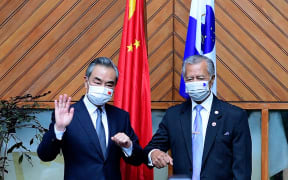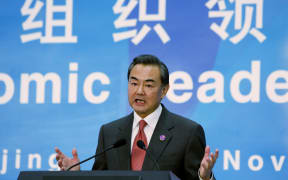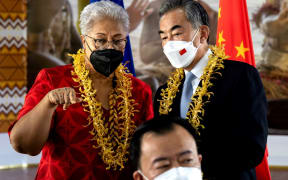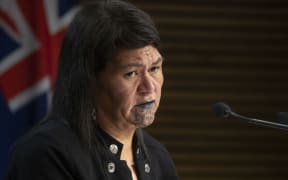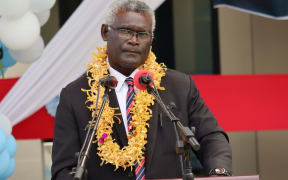China's government says it remains confident it can strike a sweeping trade and security agreement with 10 Pacific Island states despite being forced to shelve its proposed agreement.
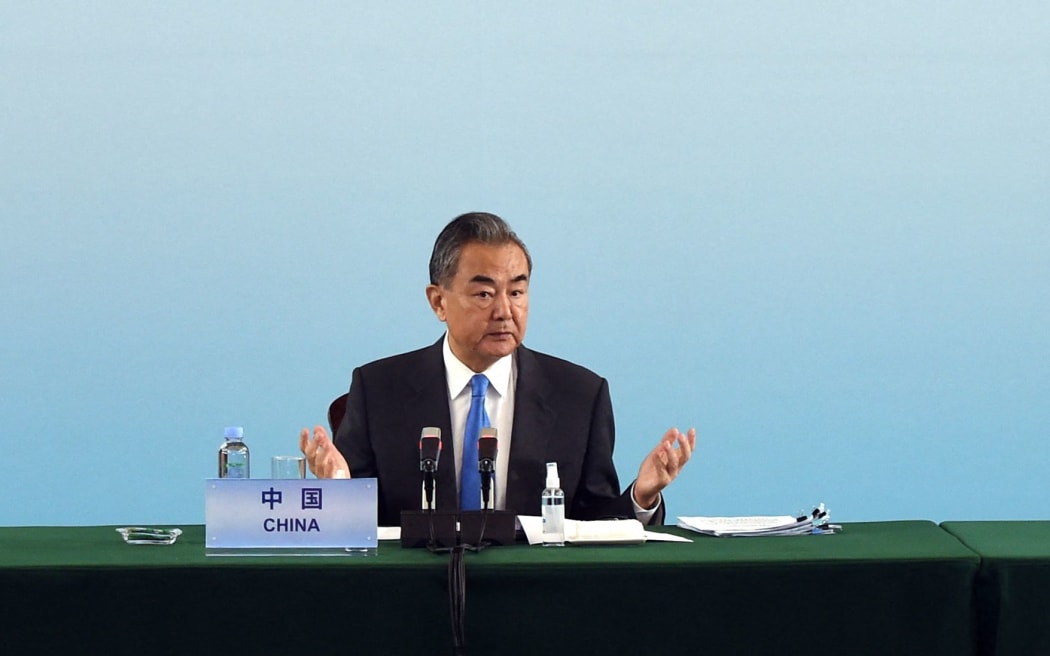
Photo:
Chinese Minister of Foreign Affairs Wang Yi
China's Foreign Minister Wang Yi met with 10 Pacific counterparts on Monday, less than a week after a copy of the Common Development Vision agreement was leaked to the press.
The proposal stoked controversy among Pacific Island nations, with Federated States of Micronesia President David Panuelo warning it could stoke geopolitical confrontations in the region and undermine the sovereignty of Pacific countries.
On Monday, China's ambassador to Fiji confirmed some Pacific nations had "concerns" about some "issues" in the agreement and said Beijing would try to seek consensus from them.
But Chinese Foreign Ministry spokesman Zhao Lijian played down the significance of the pause when asked about it by journalists in Beijing.
"As for the joint document you mentioned, it involves an ongoing process of discussion," he said.
"Not every meeting has to issue a joint document.
"At the foreign ministers' meeting this time, all parties reached new consensus on this, making an important step towards reaching the final agreement.
"The parties agreed to continue to engage in active and practical discussions in order to build more consensus."
Separately, the state-owned tabloid Global Times appeared to take aim at Panuelo for blocking the agreement, saying "a few people" in the Pacific "under the pressure and coercion of the US and former coloniser may be willing to serve American interests at the cost of their national and people's interests".
However, an increasing number of Pacific Island leaders have now raised concerns about both the substance of the pact, and the way China seemingly tried to push through the agreement ahead of Wang's meeting yesterday.
Samoa's Prime Minister, Fiame Naomi Mata'afa, suggested during a press conference on Monday that her country had been rushed by China, saying: "We have not made a decision [about the agreement] as we did not have enough time to look at it."
The Pacific needs genuine partners, not superpowers that are super-focussed on power. At an excellent meeting with Minister Wang Yi, I've sought stronger Chinese commitment to keep 1.5 alive, end illegal fishing, protect the #BluePacific's ocean, and expand Fijian exports. pic.twitter.com/vBSVJtDf6a
— Frank Bainimarama (@FijiPM) May 30, 2022
Diplomatic sources told the ABC that Fiji had indicated to China ahead of the meeting it would not be able to secure an agreement because some Pacific Island nations had reservations about its impact.
But they also stressed that China had not abandoned the pact and Beijing would now likely redouble efforts to convince Pacific Island nations to sign it.
Anna Powles from Massey University said while Chinese officials had adopted the "language" of consensus, they "clearly haven't put it into practice so far".
"The outcome shows that there was clear resistance to the deal on the part of Pacific leaders due to concerns about substance and the process by which Beijing sought to have it adopted," Dr Powles told the ABC.
"Adopting consensus in the current environment is going to be challenging given publicly stated concerns from FSM (Federated States of Micronesia) and Palau as well as Niue."
The Samoan leader also suggested the issue could be raised at the next Pacific Islands Forum leaders' meeting, which is likely to be held in July.
Dr Powles said discussing the issue at the Pacific Islands Forum (PIF) would be "challenging" because four PIF nations still recognise Taiwan rather than China.
"Taking the deal to the PIF may be an attempt to derail it completely," she said.
- ABC
